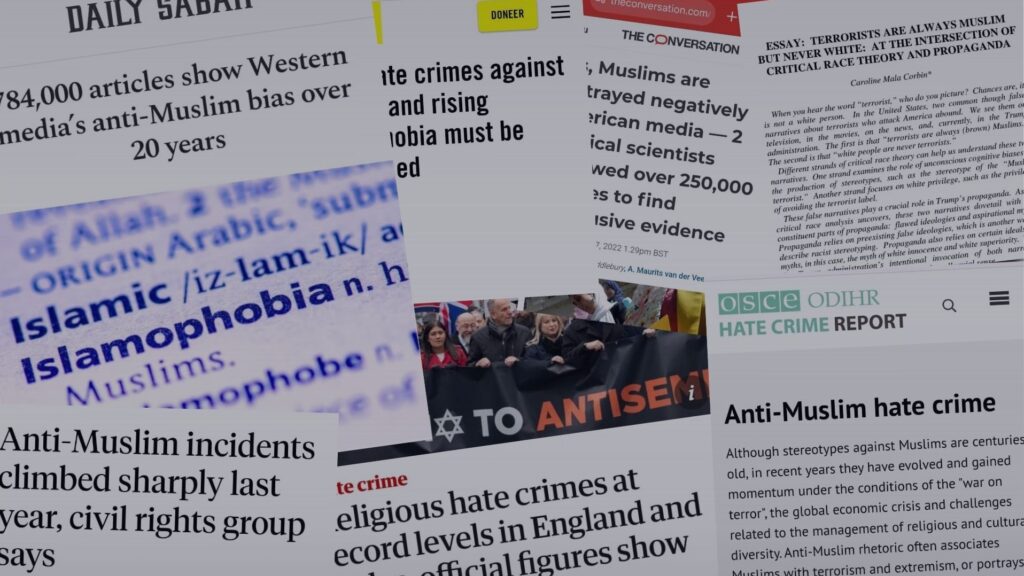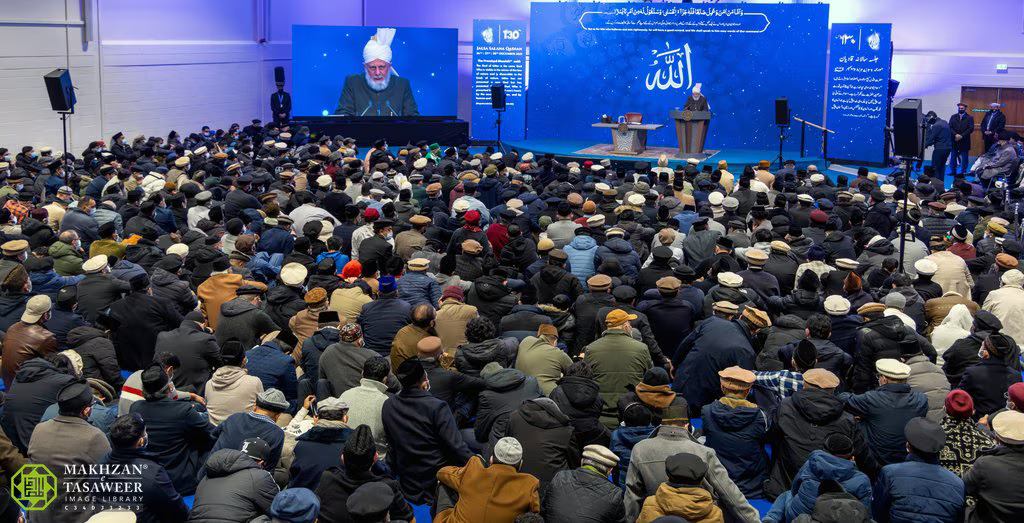HUSAM AHMED SHAFEEQ
It is utterly irrational to say that all Muslims are terrorists. For its obvious idiocy, no sane person would fall for such a claim. Yet, another dangerously misleading narrative is being normalised in many circles: that most terrorists are Muslims, implying that a single community deserves the blame for a major share of violence and terror happening across the world. Notwithstanding claims to the contrary, this too is false.
To tie a multifactorial phenomenon such as terrorism to the single concept of religion—or worse—one particular religion, would be a grave injustice. The fact that such baseless narratives not only take root but also flourish only shows how the wave of anti-Islamic sentiment has permeated the deepest realms of our society.
What drives terrorism?
Statistics prove that religion, let alone Islam, accounts for only a tiny fraction of the total amount of terrorism occurring worldwide.
The Global Terrorism Index (an annual report published based on data from around 160 countries) consistently shows political instability, corruption, and poor governance as the primary contributors to terrorism. The report states 98 percent of terrorist attacks between 2007 and 2023 took place in countries afflicted with conflict.[1]
Another pivotal study in this field was conducted by Robert Pape, an American political scientist, who compiled a database of all suicide terrorist attacks committed worldwide from 1980 to 2003. His research found that 95 percent of suicide bombings in this period were motivated by political rather than religious goals. The study specifically points out that the presence of foreign combat forces drastically increases the likelihood of such instances in a country, where suicide attacks are employed as a means of resistance against such occupations.[2] Pape re-asserted his findings in a follow-up study, showing that 87 percent of suicide attacks that occurred worldwide between 2004 and 2009 happened in countries where foreign combat forces were stationed.[3]
These facts clearly demonstrate that singling out religion as the sole driver of terrorism is only the result of prejudicial exaggeration of data and unfair distortion of facts.
The hoax of Muslim prevalence
Yet, for those who are stubbornly hell-bent on ignoring these factors and attributing terrorism to the religion of the perpetrators, again, the statistics tell a different story.
Data from a wide range of studies consistently shows that Muslims represent only a minuscule percentage of terrorist attacks happening worldwide.
According to the Global Terrorism Database (GTD), which tracks terrorist incidents around the world, acts of terrorism are perpetrated by groups from a wide variety of ideological backgrounds, such as nationalists, separatists and far-right extremist groups, of which, Muslims are responsible for only an infinitesimal share.[4]
Likewise, a study by Fondapol, a French liberal think tank, found that Muslim terrorists accounted for less than 19 percent of all terrorist attacks that occurred globally between 1979 and 2019.[5]
Similarly, the European Union Terrorism Situation and Trend Reports (TE-SAT), published annually by Europol, consistently show that a significantly major portion of terrorist attacks in Europe have been perpetrated by ethno-nationalist or separatist organisations, followed by left-liberal terrorist groups, while Muslims constituted only a minor proportion.[6]
Yet another report published by the US Government Accountability Office (GAO) revealed that since 9/11, far-right extremist groups have been responsible for nearly three times more terrorist attacks on American soil than Muslim extremists.[7]
Furthermore, the annual reports by the Anti-Defamation League (ADL) show that right-wing extremists were responsible for 71 percent of extremism-related murders in the US between 2008 and 2017.[8]
These, and numerous similar studies, well expose the inherent falsity in the Islamophobic claim that seeks to portray Muslims as the major perpetrators of terrorist incidents happening across the world.
Media: The peddlers of propaganda
Islam sells, and undoubtedly, the media profits from it. Although it should not come as a surprise that terrorist attacks involving Muslims get greater media attention as compared to those involving non-Muslims, the degree of disparity in these coverages is indeed alarming.
A crucial study published in the journal Justice Quarterly examined different media outlets in the US and found that terror attacks by Muslim perpetrators received 357 percent more media coverage than those perpetrated by non-Muslims. Even more concerning was the fact that for major media outlets, the increase was even higher, reaching a drastic 758 percent.[9]
Media Tenor, a prominent media research company, analysed US news from 2001 to 2021 and found that TV news outlets continuously featured stories involving Muslims centred on terrorism or conflict. After examining over 100,000 reports on international TV news programs, the research concluded that such coverage relies on stereotypes and reinforces the idea that Islam is a major threat to the world.[10]
Another significant data in this regard comes from the Centre for Media Monitoring, where they found that in the UK media, Islam and Muslims were often portrayed negatively, with over 60 percent of coverage linking them to negative contexts. The report highlighted how headlines and stories tended to emphasise violence and extremism while significantly underreporting positive representations of Muslims.[11]
Similarly, an investigation carried out by One Path Network into Australian media’s coverage of Islam and Muslims in 2017 found that there were almost 3000 articles published in five major media outlets that referred to Islam or Muslims alongside words like ‘violence’, ‘extremism’, ‘terrorism’ or ‘radical’.[12]
This biased reporting hence relies on a self-replicating mechanism of hatred, where it stems from animosity against Muslims and then contributes to further intensifying that enmity in society.
The myth of silent spectators
The propaganda of portraying Islam as a global threat requires the support of numerous falsehoods. One lie cannot singlehandedly hold the weight of this misleading narrative.
Hence, a theory is weaved—out of thin air—that a large majority of Muslims worldwide silently cheer for extremists fighting in the name of Islam, even though they do not themselves take part in such acts.
The double standard underpinning this claim is glaringly manifest, as blaming a whole community for the actions of some is a logic that is selectively applied to Muslims alone. Such instances of public accountability can hardly be witnessed when people of other faiths, like Christians, Jews or Hindus, commit acts of violence. As such, reports reveal that Muslims are expected—more so than any other community—to denounce violence perpetrated in their name.[13]
Yet, regardless of this selective criticism, Islam, however, teaches that any act of evil should be categorically called out. The Holy Prophetsa exhorted his followers to prevent injustice using power, if they had the authority to do so, or openly condemn any act of wickedness.[14] Hence, for Muslims, denunciating violence against humanity becomes a religious responsibility that should be carried out without regard to those committing prejudiced accusations.
Therefore, Muslims are always seen at the forefront of condemning extremism, particularly when committed in the name of Islam.
The Ahmadiyya Muslim Community, since its inception, has remained a vociferous critic of extremism. The Founder of the Community and the successive Caliphs have not only consistently denounced acts of terror but also offered solutions based on Islamic teachings to counter such instances. This firm stance against terrorism is thoroughly reflected in the Community’s extensive body of literature, which categorically condemns all forms of extremism as both inhuman and antithetical to Islamic teachings.
Similarly, prominent Muslim organisations and leaders around the world have repeatedly condemned terrorism in the name of Islam. For example, the Organization of Islamic Cooperation (OIC), representing over 57 Muslim-majority countries, has consistently condemned terrorism and strongly opposed the dangerous misinterpretation of Islamic teachings by extremist groups.[15] Likewise, Muslim organisations such as CAIR (Council on American-Islamic Relations)[16] in the US and the Muslim Council of Britain (MCB)[17] frequently issue statements condemning terror attacks in the West and elsewhere.
Moreover, polls also debunk the narrative that Muslims condone terrorism. In the largest study of its kind, a Gallup poll found that around 93 percent of Muslims worldwide reject violence against civilians. Interestingly, this was the highest rejection rate among all groups surveyed in the poll.[18]
A similar survey by the Pew Research Center found that an overwhelmingly vast majority of Muslims across many countries hold staunch opposition to terrorist organisations like Al-Qaeda and Taliban.[19]
Thus, not only do Muslims categorically reject terrorism, but their condemnation is too loud, widespread and overwhelming for any unbiased person to ignore.
Countering hate with love
Disinformation ensues enduring destruction. It murders truth—the last string of hope that ties societies to peace and reconciliation. It fosters prejudice and alienates communities, creating a vicious cycle where misunderstanding breeds more conflict.
The rhetoric linking Islam to terrorism is a blatant example of how minds are manipulated to hate a community and feel completely normal to spew venom against them. It perfectly exemplifies how time bombs of hatred are planted in the hearts of people, which then go off, not just in the form of hate speech but also physical assaults and hate crimes.[20]
Quite truly, such narratives are highly inflammatory, and sometimes, responding to them in the same vein seems justified. However, the solution Islam offers to counter this menace is to overcome enmity with kindness and hatred with love. The Quran states:
“And good and evil are not alike. Repel (evil) with that which is best. And lo, he between whom and thyself was enmity will become as though he were a warm friend.”[21]
Thus, the only remedy to neutralise this venomous propaganda is to combat falsehood with truth, bombarding each lie with facts. However, most importantly, to obliterate this narrative requires us to set a practical example of goodness and—as Islam fundamentally expects of us—become merchants of peace.
END NOTES
[1] Global Terrorism Index 2024, by Institute for Economics & Peace
[2] Dying to Win: The Strategic Logic of Suicide Terrorism, Robert A Pape (2005), Random House, New York
[3] Cutting the Fuse: The Explosion of Global Suicide Terrorism and How to Stop It, Robert A Pape (2010), University of Chicago Press, Chicago and London
[4] Global Terrorism Database, maintained by the National Consortium for the Study of Terrorism and Responses to Terrorism (START) at the University of Maryland, College Park
[5] Islamist Terrorist Attacks in the World 1979-2019, by Fondapol (2019), p. 67
[6] European Union Terrorism Situation and Trend Reports, being published since 2007 by Europol
[7] Countering Violent Extremism: Actions Needed to Define Strategy and Assess Progress of Federal Efforts, by United States Government Accountability Office, April 2017
[8] Murder and Extremism in the United States in 2017 by Anti-Defamation League
[9] Why Do Some Terrorist Attacks Receive More Media Attention than Others? Erin M Kearns et al. (2019), Justice Quarterly
[10] 20 Years After 9/11: The Media Still Reduce Muslims to Terror, retrieved from Media Tenor, 10 September 2021
[11] British Media’s Coverage of Muslims and Islam (2018-2010), Faisal Hanif (2021), published by the Centre for Media Monitoring
[12] Islam in the Media 2017, One Path Network, 18 February 2018
[13] American Muslim Poll 2019: Predicting and Preventing Islamophobia, a report by the Institute for Social Policy and Understanding, p. 19
[14] Sahih Muslim, Kitab al-Iman (The Book of Faith)
[15] Resolutions on Political Affairs Submitted to the 43rd Session of the Council of Foreign Ministers, Organization of Islamic Cooperation (OIC), 18-19 October 2016
[16] CAIR’s Condemnation of Terrorism (nd), retrieved from CAIR’s official website
[17] Muslims Against Terrorism (nd), retrieved from MCB’s official website
[18] Who Speaks for Islam? What a Billion Muslims Really Think, John L Esposito & Dalia Mogahed (2007), Gallup Press, New York, pp. 69-70
[19] Most Muslims Want Democracy, Personal Freedoms, and Islam in Political Life, by Pew Research Center, 10 July 2012
[20] Anti-Muslim Hate Crimes Increase Fivefold Since London Bridge Attacks, Vikram Dodd & Sarah Marsh, The Guardian, 7 June 2017
[21] Holy Quran 41:35













2 Comments
S Z Ahmad · November 26, 2024 at 4:44 pm
This is a scholarly investigation that tries to unravel the myth of ‘Muslim intolerance’ as projected in recent years. The various studies made by different researchers have revealed that demonizing the Muslims particularly in recent years has no basis whatsoever. The author’s suggestion of reaching out to the non-Muslims in the light of Ahmadiyya community’s teachings is practical and implementable.
Ebrahim SHAHID Muvattupuzha · November 27, 2024 at 4:13 am
It is a very useful article to guide the mislead intellectuals to the inner teachings of Islam. Especially in the context of terrorism.